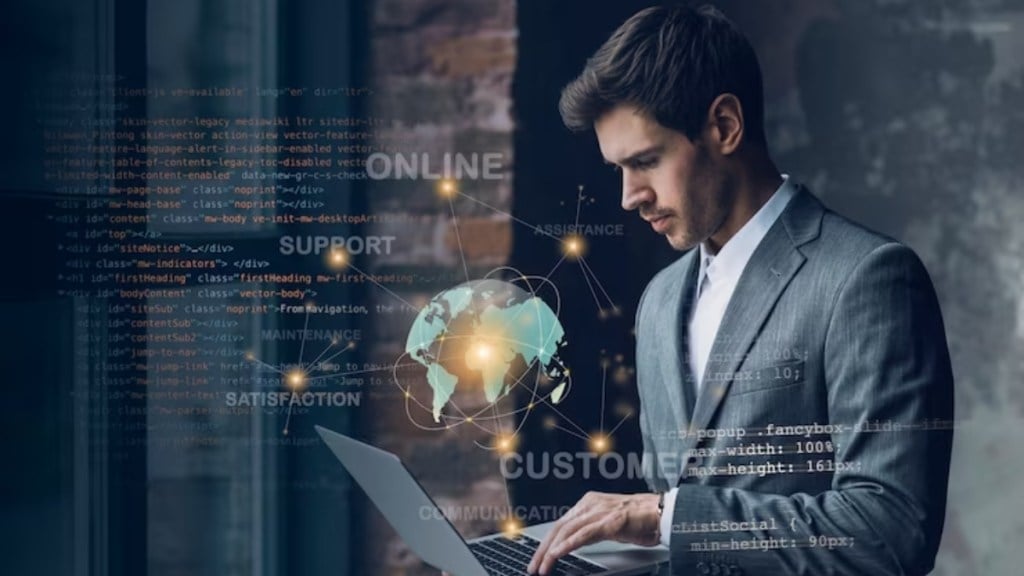By Lalit Sachan
We have witnessed the remarkable ways data science has revolutionised the corporate landscape, facilitating businesses to make informed decisions and optimise their processes. However, in the non-profit and public sectors, there’s been a noticeable gap in adopting this transformative tool. Even though these organizations are driven by a strong mission to reach and assist more individuals, they frequently grapple with limited resources and expertise, making it challenging to harness the full potential of data science effectively. In other words, while everyone generates data, not everyone benefits from it. This gap in data utilization underscores the enormous potential for data science to create a positive social impact when applied by organizations with the right talent, tools, and knowledge.
Creating Social Impact
The perceptible results of data science for social good are evident in various sectors. Data science is making a positive impact on society in diverse ways. It plays an important role in foreseeing disaster paths and intensities, monitoring social media for situational awareness, improving resource allocation, evaluating infrastructure damage via remote sensing data, and developing models for disease outbreak prediction and response. In 2016, the NASA Earth Science mission launched the Cyclone Global Navigation Satellite System (CYGNSS) to improve storm surge, intensity, and path forecasting, ultimately saving lives and reducing the impact of cyclones.
Data science is used in humanitarian aid and refugee assistance. It helps assess demographic data, migration trends, and social indicators to better comprehend the needs of displaced populations. For instance, Microsoft has been at the forefront of supporting AI for Humanitarian Action projects to address challenges in disaster response, refugees, displaced people, human rights, and the needs of women and children through grants, technology donations, and data science support.
Data science also contributes to community health and well-being by analysing healthcare data, socioeconomic factors, and environmental information. Startups like Mumbai-based Qure.ai use AI to make healthcare solutions affordable and accessible by interpreting radiology images within seconds. Non-profit organisations like DataKind collaborate with institutions such as the World Bank to analyse large datasets to ensure transparency, fight corruption, and improve public safety.
Furthermore, data science aids in environmental protection and sustainability by analyzing environmental data, satellite imagery, and climate models. It helps monitor deforestation, predict pollution levels, and optimise resource management. For example, the National Remote Sensing Centre in India uses AI and automation to monitor and combat deforestation, ensuring the preservation of natural resources.
For Social Good
As technology advances, the future of data science for social good holds immense potential. Emerging technologies and trends are well placed to address societal challenges and drive positive change.
Artificial Intelligence and Machine Learning (AI and ML) have the power to positively impact social welfare by enhancing sectors like education, healthcare, environmental conservation, poverty alleviation, and disaster response. Their ability to analyse vast datasets and make predictions can revolutionize decision-making and resource allocation, ultimately benefiting society.
Blockchain technology is another transformative force with the potential for social good, offering transparency, security, and efficiency in the equitable distribution of resources. It can revolutionize supply chain transparency, enhance identity management for refugees and the unbanked, and enable trustworthy voting systems, contributing to a fairer and more accountable society.
Additionally, crowdsourcing and citizen science harness the power of collective intelligence for social impact. Crowdsourcing involves enlisting large communities to address complex challenges, while citizen science empowers individuals to actively partake in scientific research and data collection. These approaches foster innovation and drive positive change across various domains, furthering the common good.
Achieving Sustainable Development Goals
To achieve the Sustainable Development Goals for 2030, established by the United Nations, data science and analytics have significant standing. Let us understand how data science can address specific social concerns defined by these goals:
Zero Hunger: Data science and analytics can cut post-harvest losses in half, potentially feeding a billion more people. Precision agriculture uses big data analytics to observe and analyze the specific needs of individual fields and crops, reducing food waste and hunger.
Good Health and Well-Being: Data science manages and analyzes vast healthcare datasets, improving decision-making and patient care. Initiatives like the National Digital Health Mission in India build a strong digital infrastructure for enhanced healthcare management.
Quality Education: Data science enhances the quality of education through personalized learning, data-driven teaching methods, and efficient grading systems. The integration of data science in education benefits both educators and students, fostering a better learning experience.
Gender Equality: Data science can monitor and eliminate gender biases in organizations, aid in diverse workforce recruitment, predict employee behavior, and create fair compensation structures. These efforts can expedite progress toward gender equality.
Reduce Inequalities: Data science and analytics can identify economically disadvantaged students, provide financial aid, and reduce school dropout rates. These tools help bridge economic gaps and ensure access to quality education.
Peace, Justice, and Strong Institutions: Data science can measure progress in conflict resolution, human rights, and political freedoms. By providing data-driven insights, it supports peacebuilding and helps address issues associated with poverty, hunger, and inequality.
To conclude
Data science is a powerful tool for creating a better world. To use its full potential for social good, collaboration among universities, non-profits, government agencies, and corporations is the need of the hour. Furthermore, nurturing a new generation of data scientists who are conscious of its social impact can facilitate achieving sustainability goals.
The author is co- founder of Edvancer. Views are personal.
